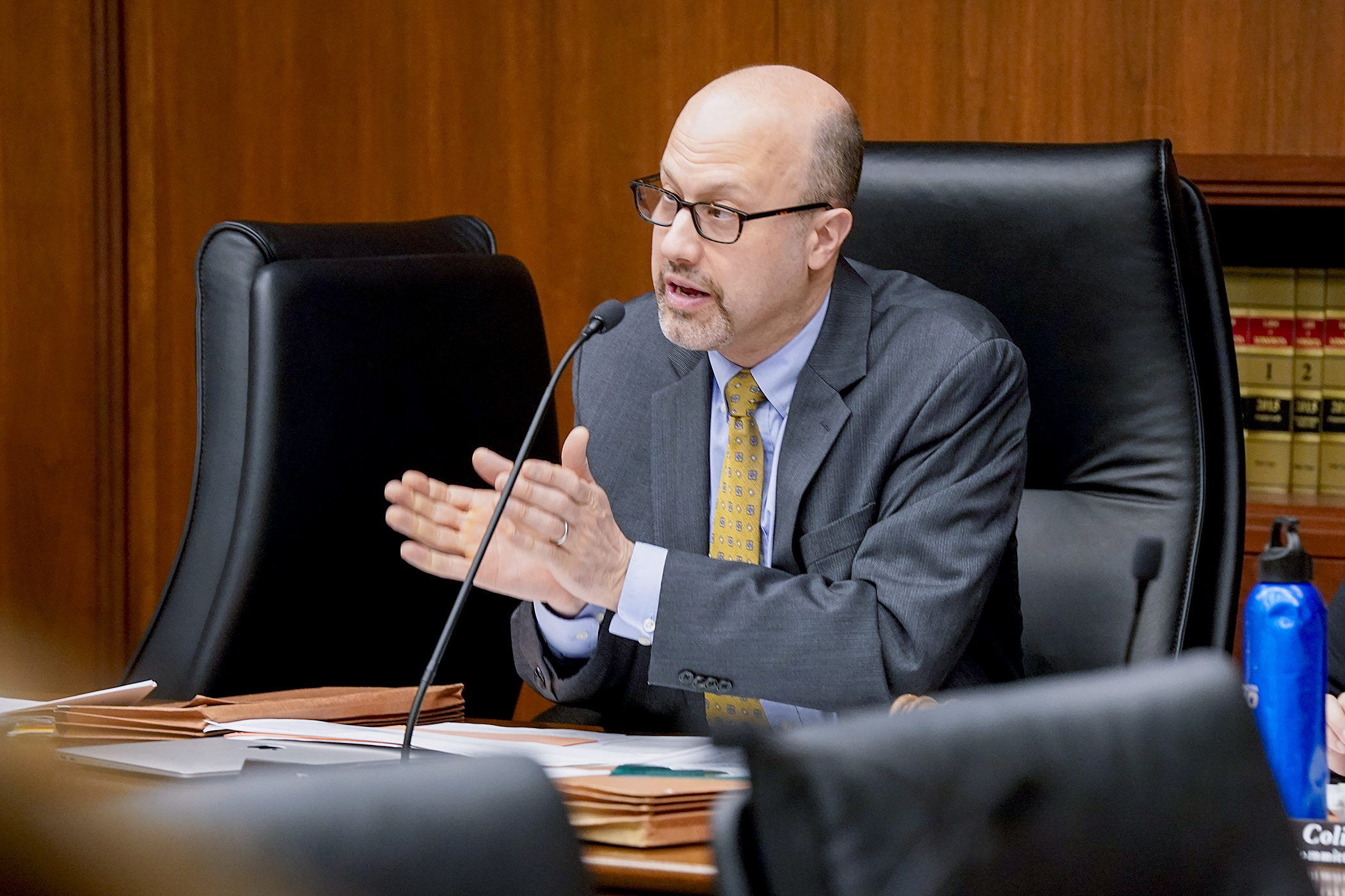Children and families budget bill takes steps to fund tech fixes, fight food insecurity

Money to modernize the antiquated system used to track and manage child welfare case work and funding for a summer program to feed families are the big-ticket items in the children and families budget bill unveiled Tuesday.
The House Children and Families Finance and Policy Committee received a walkthrough of a delete-all amendment to HF2476. Rep. Dave Pinto (DFL-St. Paul), the committee chair and bill sponsor, said amendments will be offered Thursday before a final vote is taken.
The proposal would appropriate $34.37 million from the General Fund in the 2024-25 biennium in supplemental funding for early childhood programs. It would also modify some child welfare and child care licensing programs and make technical changes to existing laws.
[MORE: View the spreadsheet]
One of the largest appropriations would be $9 million to continue work to fix the outdated Social Services Information System used by more than 6,000 workers around the state to track and manage child welfare case work. Nonpartisan House Fiscal Analysis staff said the appropriation would also draw federal funds, so total funding would be $16.6 million at this time.
Members on both sides of the aisle have said repeatedly this session the system must be overhauled, citing concerns they’ve heard about its functionality and efficacy. They’ve also learned that $80 million to $100 million is likely needed to replace the system, although the federal government could pick up as much as half of that cost.
Tikki Brown, an assistant commissioner at the Department of Human Services, said the funds would be a start to help modernize and replace the system. “This will help us begin to ease the administrative burden on frontline child welfare workers.”
However, she urged the committee to provide the full $15 million appropriation sought to begin the revamp by Gov. Tim Walz in the supplemental budget bill containing his proposals heard by the committee last week.
Pinto said there a number of areas where he would like to increase funding but the problem will be balancing those needs with the money available this session.
“That’s what we’ll have to decide as a committee on Thursday,” he said.
The bill also calls for a $10.2 million appropriation to provide the state match to participate in the federal Summer Electronic Benefit Transfer Program which provides preloaded cards families can use to buy groceries.
Another provision would make an additional $5 million one-time appropriation to fight food insecurity, with $2 million going to food shelves, $2 million to food banks, and $1 million to the American Indian food sovereignty funding program.
The bill also includes a measure that seeks to update how child care providers are regulated by moving to a weighted risk system to reflect the level of risk a violation poses to children as a way to ensure greater consistency in how child care programs are reviewed and enforced.
Other fiscal year 2024-25 appropriations in the bill include:
- $4 million for additional emergency services grants to fight homelessness;
- $760,000 to provide resources and support to caregivers who are relatives of children, while attempting to keep those kids out of the formal foster care system when it is appropriate;
- $360,000 to fund child care resource and referral programs to increase professional development and credentialing to help grow the pool of child care employees;
- $275,000 to fund a requirement that each county establish a child mortality review team and participate in critical incident reviews based on safety science principles to support a culture of learning. A new process for reviewing the incidents would also be created;
- $170,000 to hire a third-party independent consultant to conduct a fiscal analysis of the state’s child welfare system and submit a report by June 30, 2026, that includes recommendations on whether the state should increase its investment in the system;
- $136,000 for a review of current child maltreatment reporting processes and systems and develop recommendations for implementation of a common entry point system for reporting child maltreatment;
- $136,000 for a requirement that foster children or their guardians be notified if they are eligible for social security benefits. Counties can currently collect those benefits on behalf of the children, but no notification is required;
- $100,000 for the Wilder Foundation to study the number and needs of pregnant and parenting youth experiencing homelessness and best practices to support them; and
- $100,000 to the Wilder Foundation to conduct a needs analysis for an emergency shelter for LGBTQIA+ youth experiencing homelessness and develop a plan for building an emergency shelter.
***
What’s in the bill?
The following are selected bills that have been incorporated in part or in whole into the children and families budget bill:
- HF1661 (Hicks)
- HF3781 (Hicks)
- HF3826 (Keeler)
- HF3856 (Hanson)
- HF4192 (Hollins)
- HF4517 (Keeler)
- HF4697 (Pinto)
- HF4950 (Keeler)
- HF5036 (Finke)
- HF5276 (Pinto)
Related Articles
Search Session Daily
Advanced Search OptionsPriority Dailies
Speaker Emerita Melissa Hortman, husband killed in attack
By HPIS Staff House Speaker Emerita Melissa Hortman (DFL-Brooklyn Park) and her husband, Mark, were fatally shot in their home early Saturday morning.
Gov. Tim Walz announced the news dur...
House Speaker Emerita Melissa Hortman (DFL-Brooklyn Park) and her husband, Mark, were fatally shot in their home early Saturday morning.
Gov. Tim Walz announced the news dur...
Lawmakers deliver budget bills to governor's desk in one-day special session
By Mike Cook About that talk of needing all 21 hours left in a legislative day to complete a special session?
House members were more than up to the challenge Monday. Beginning at 10 a.m...
About that talk of needing all 21 hours left in a legislative day to complete a special session?
House members were more than up to the challenge Monday. Beginning at 10 a.m...